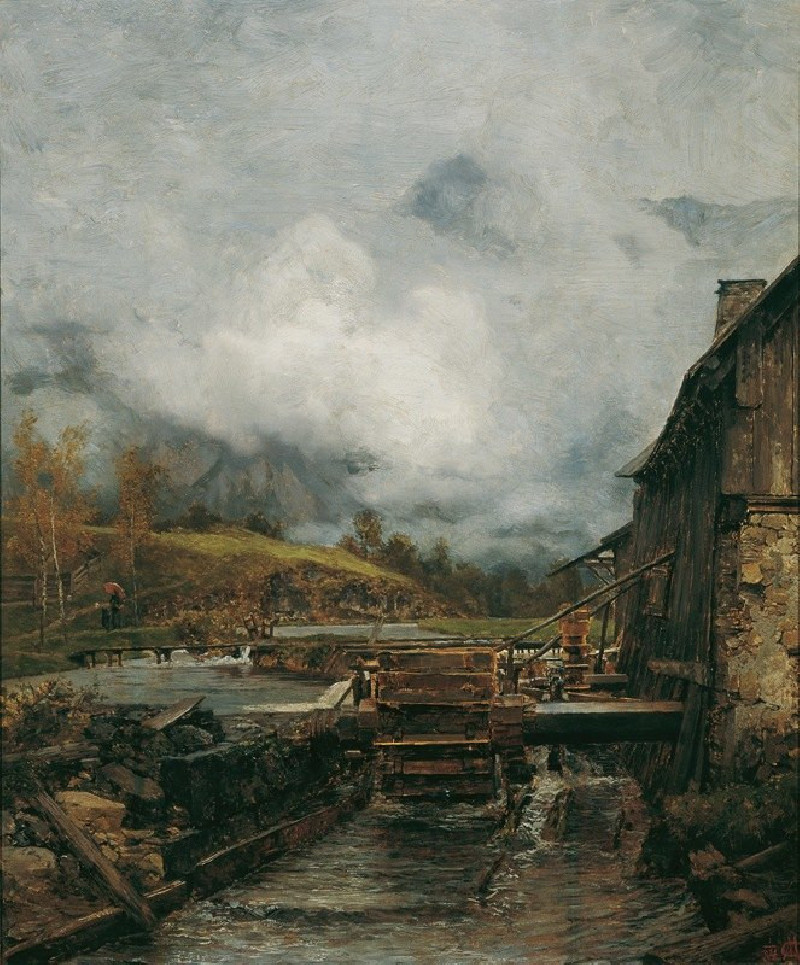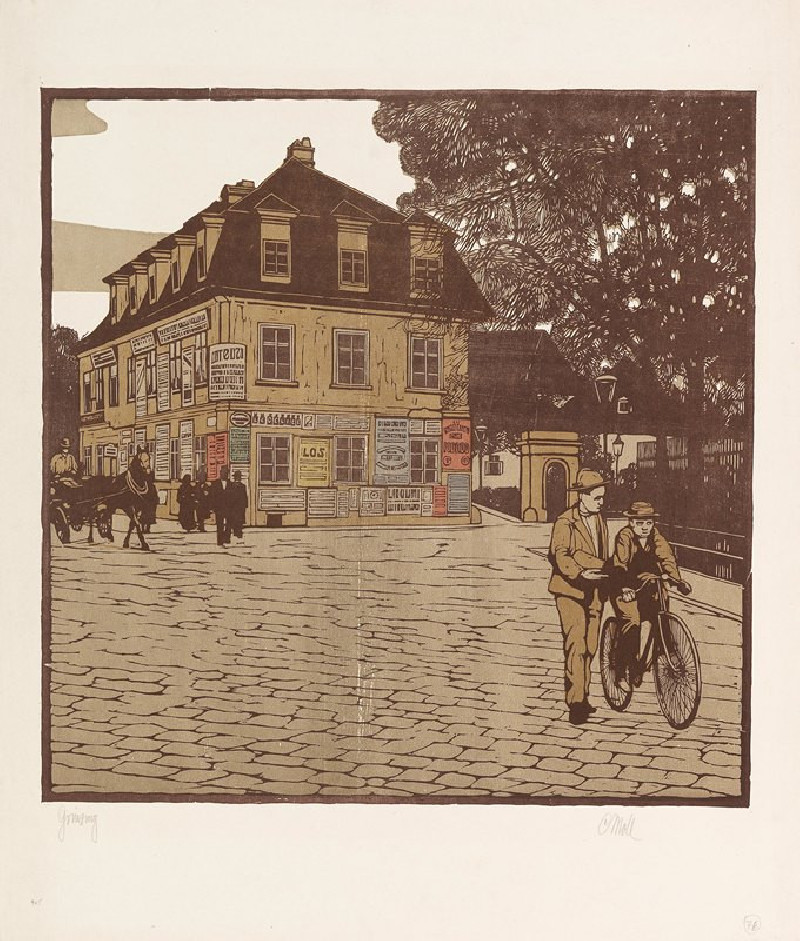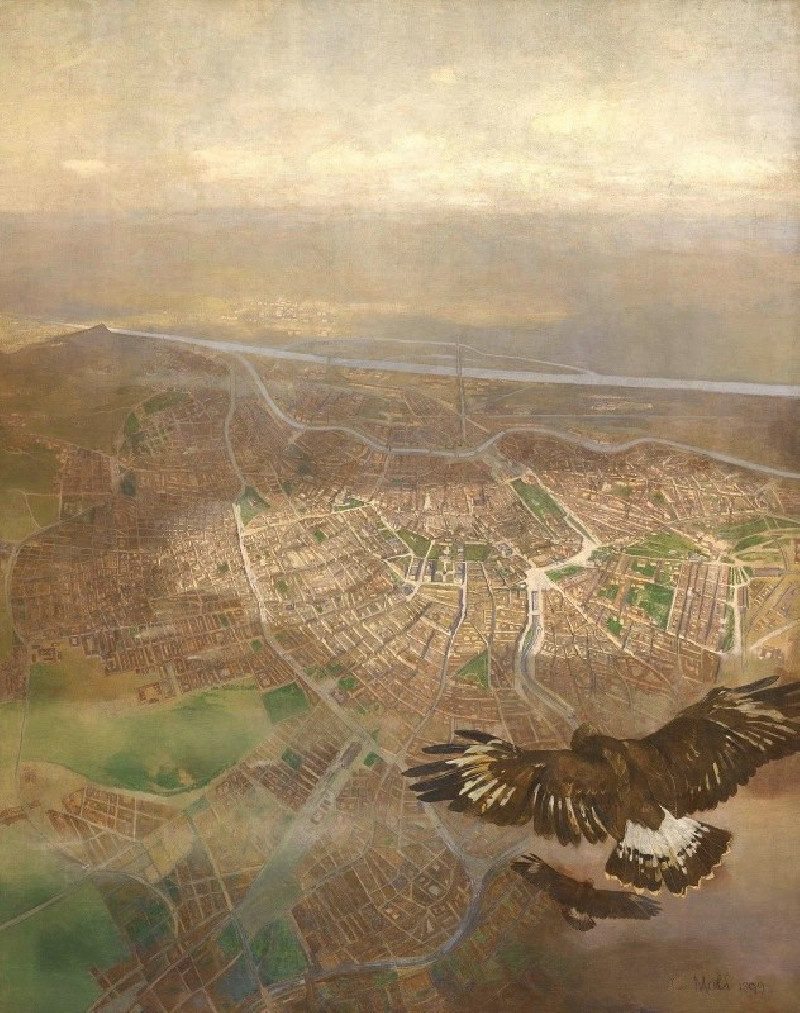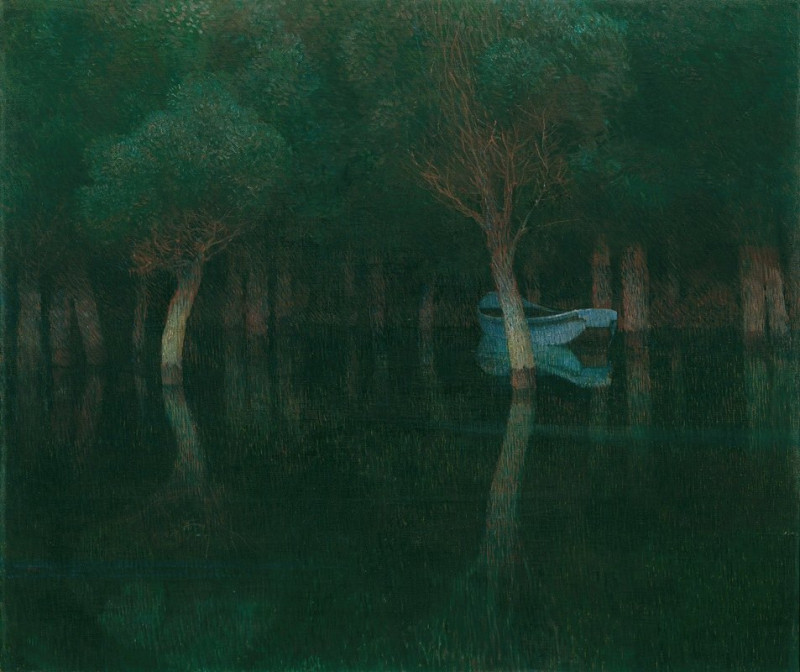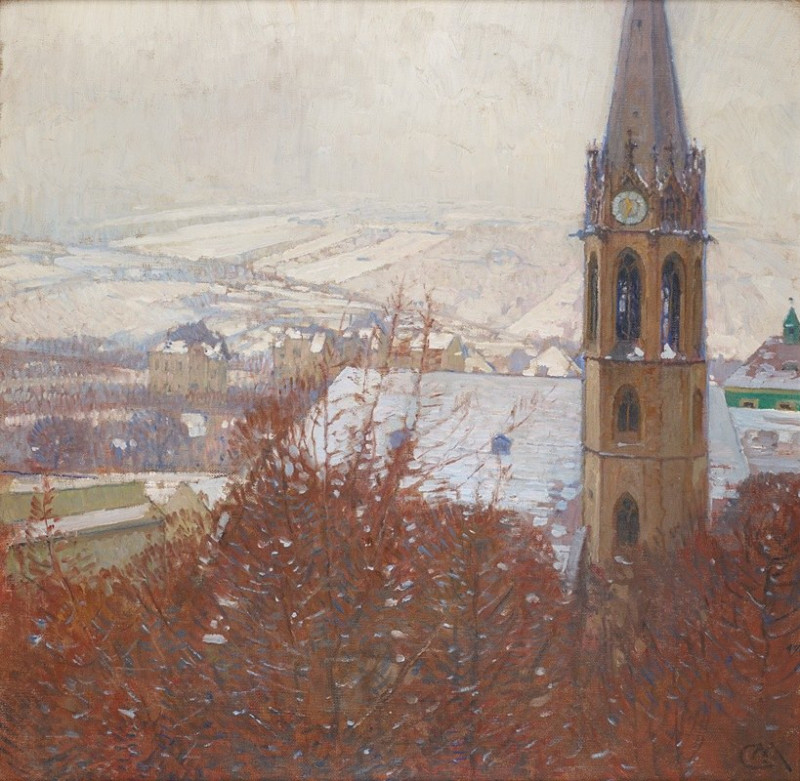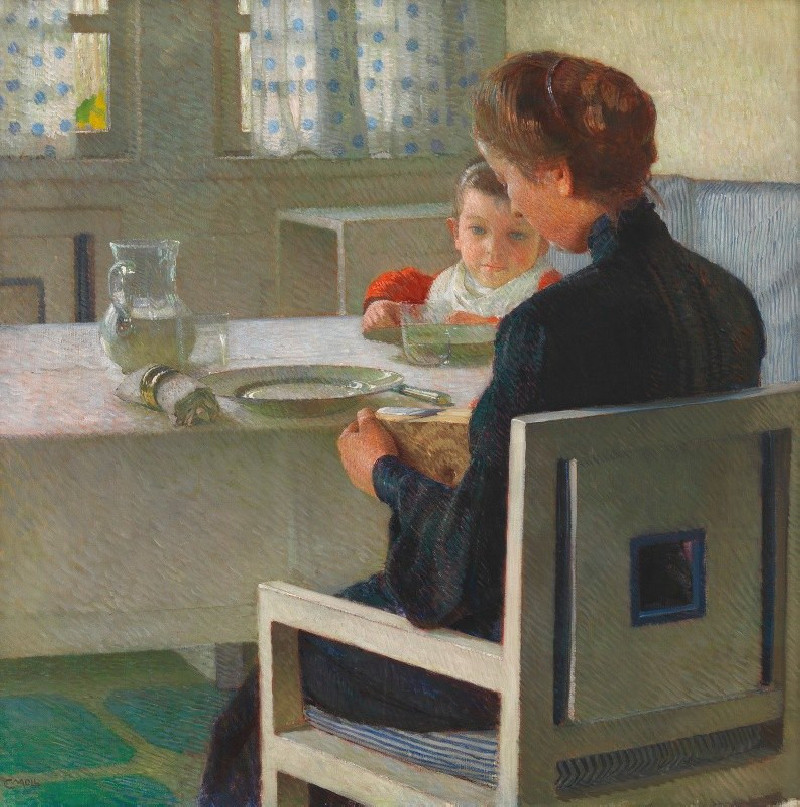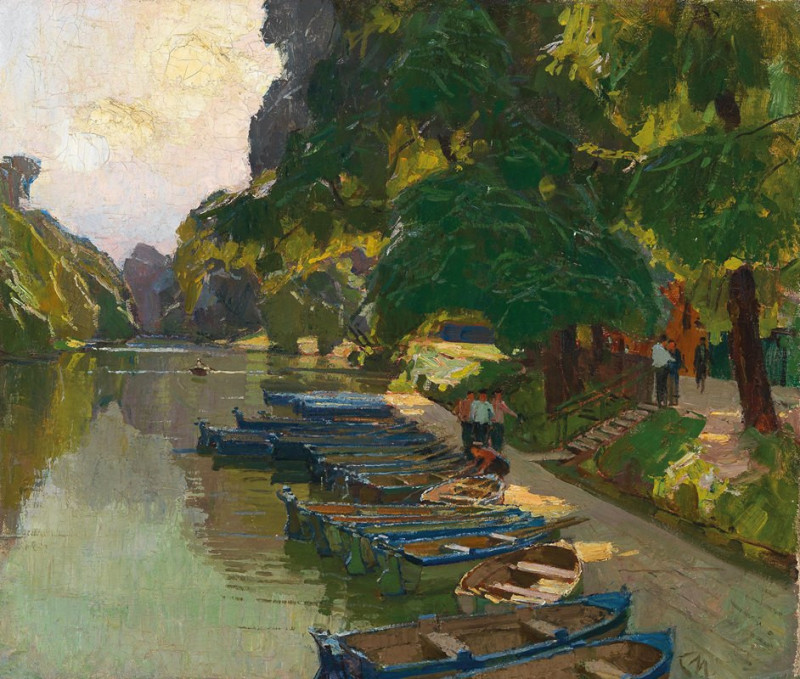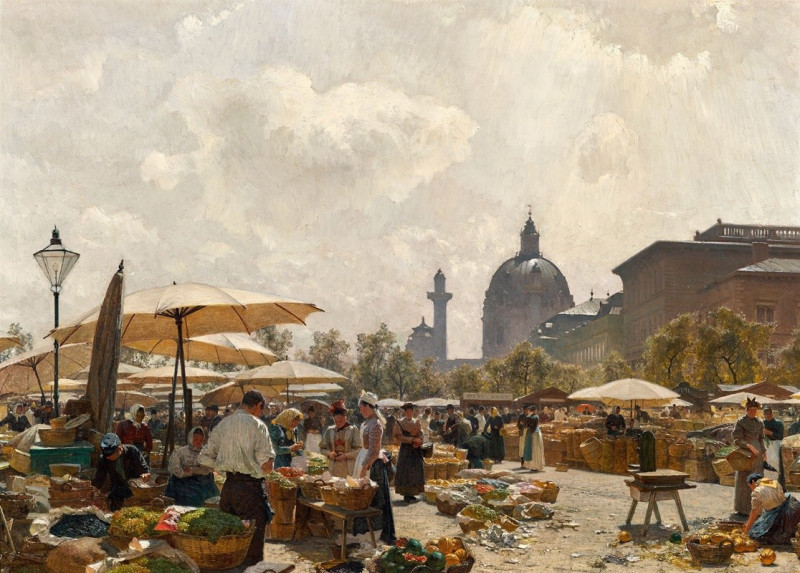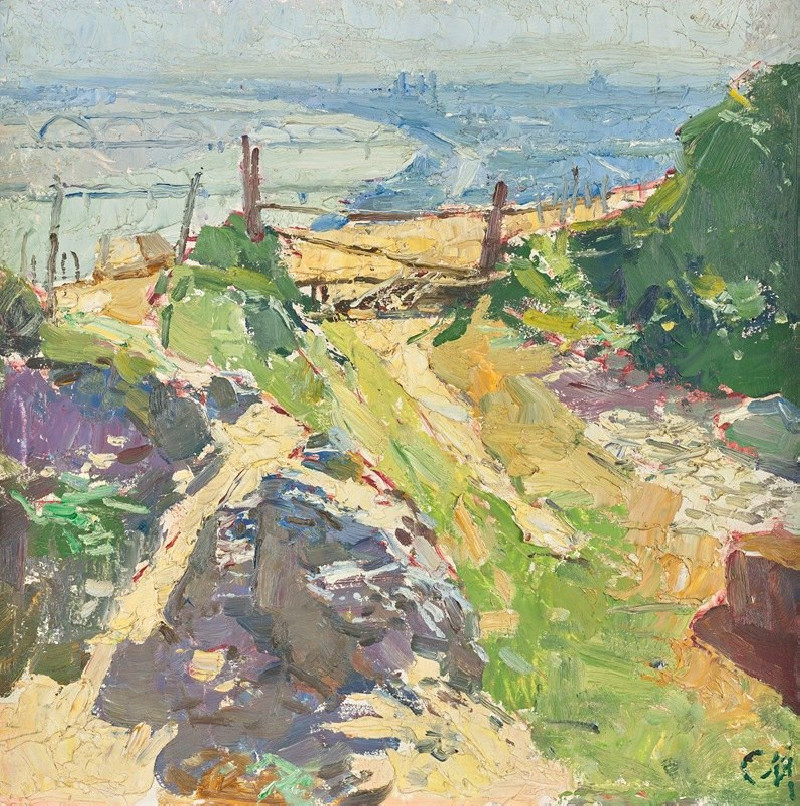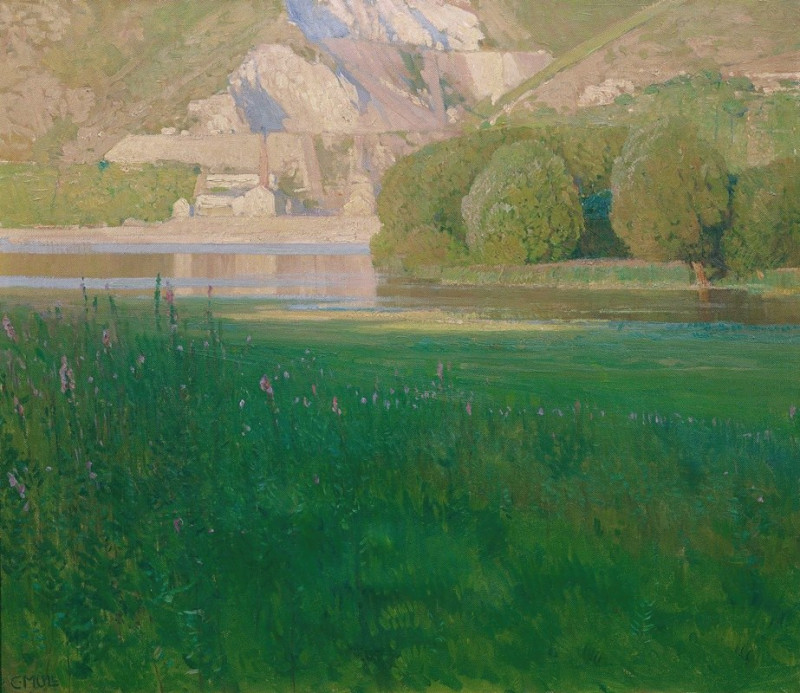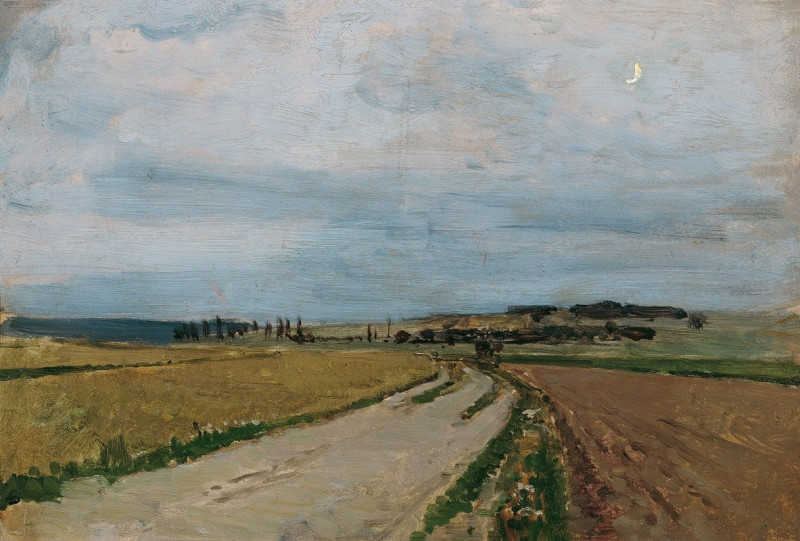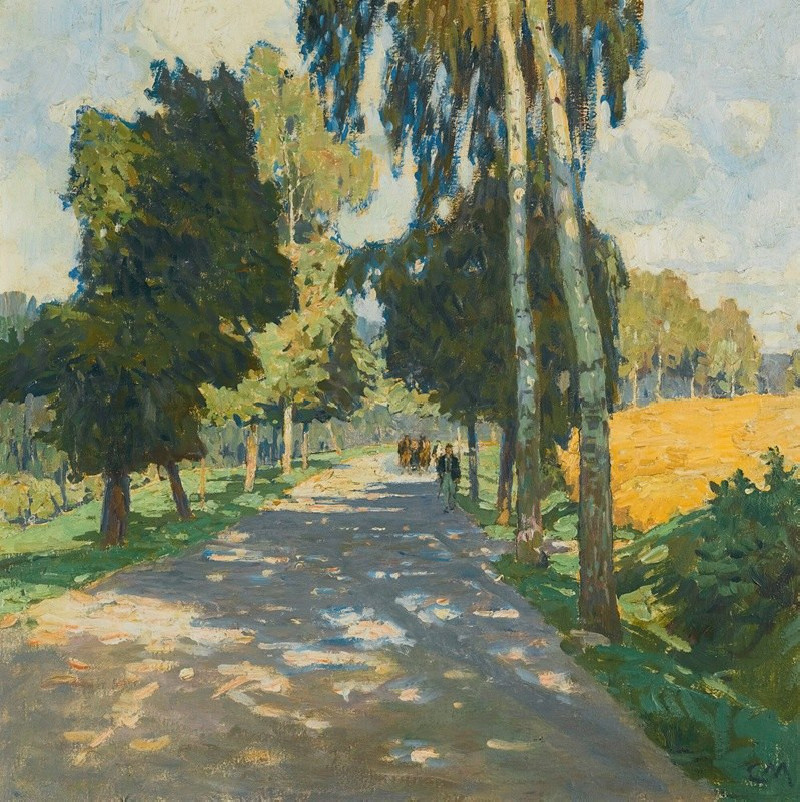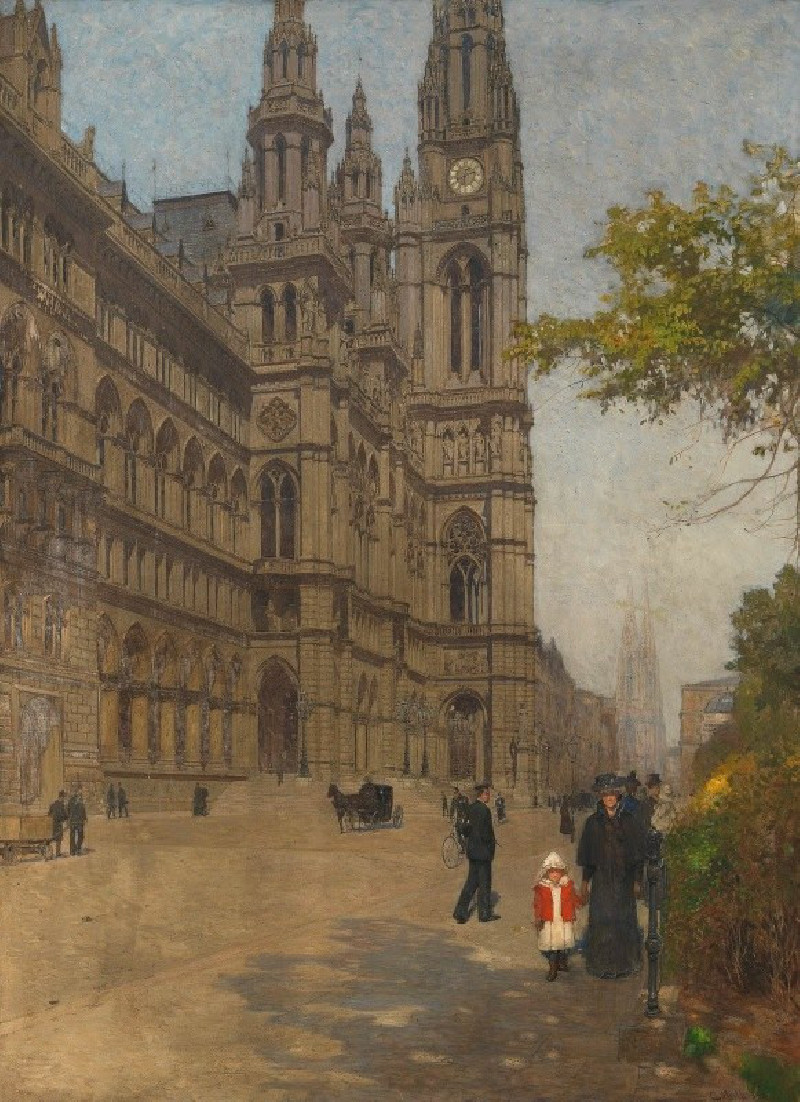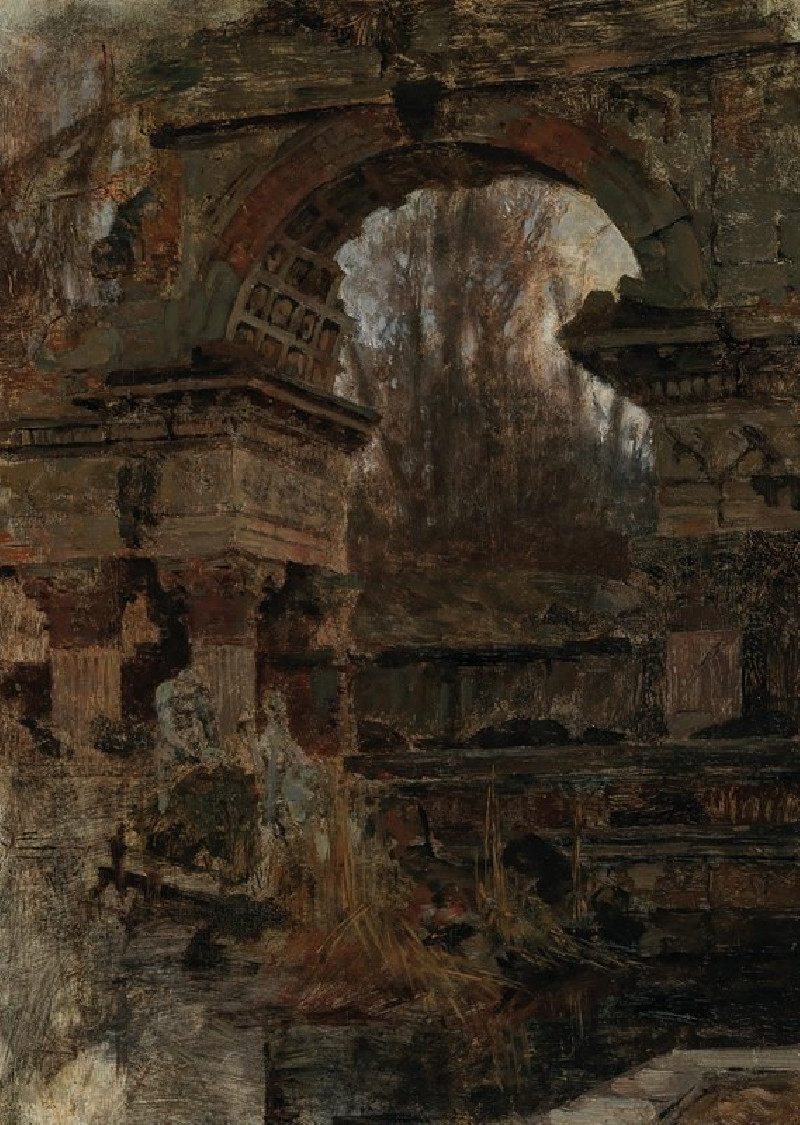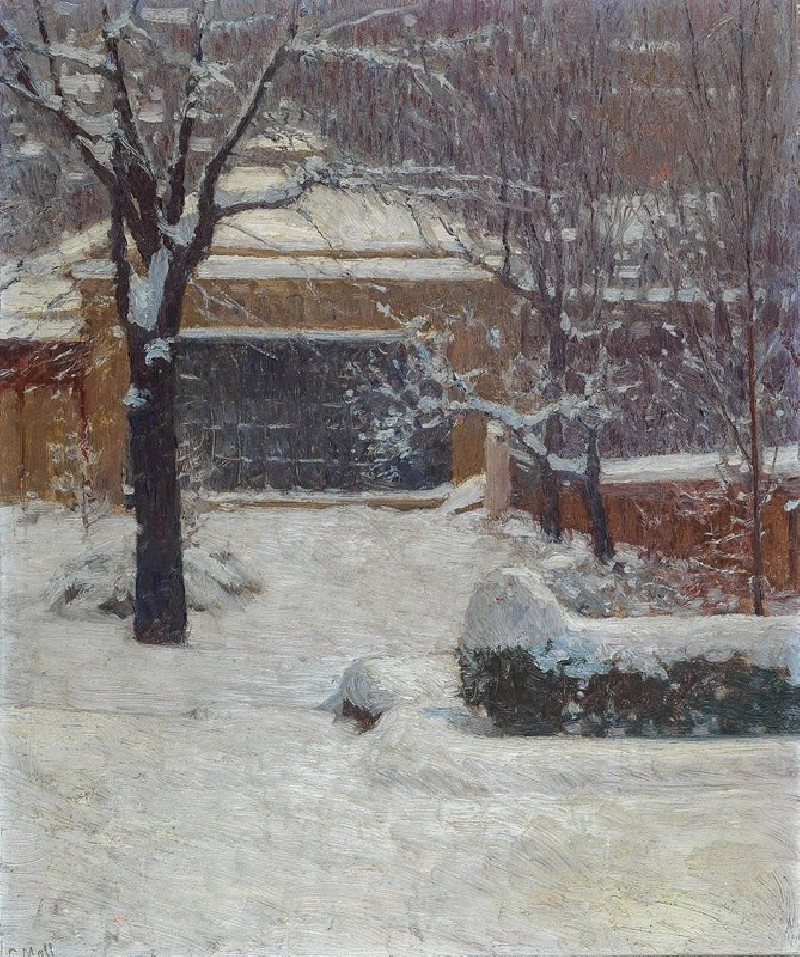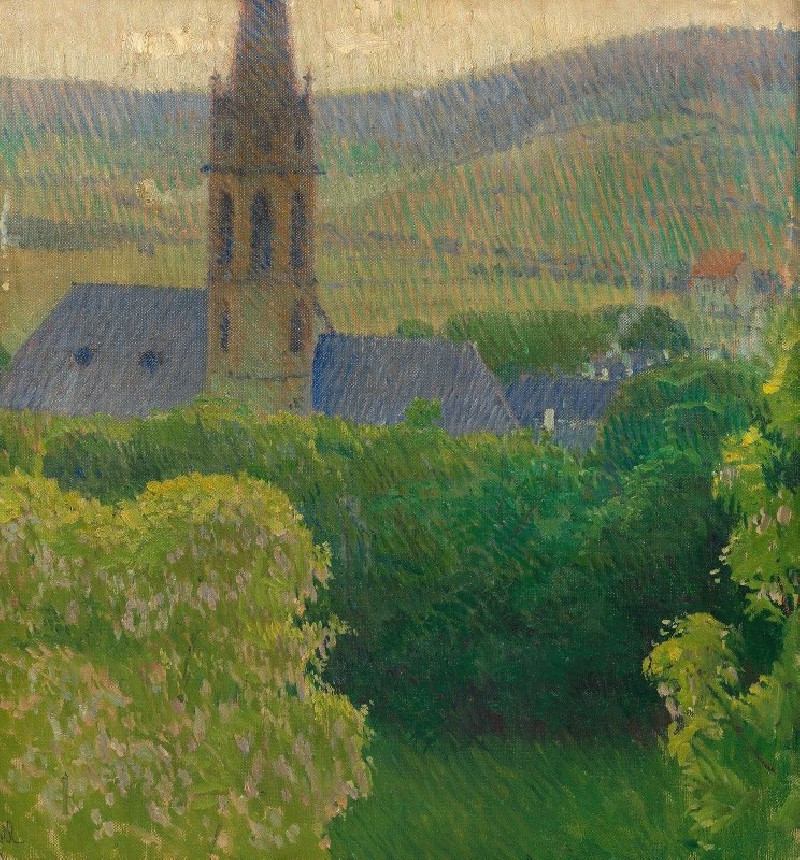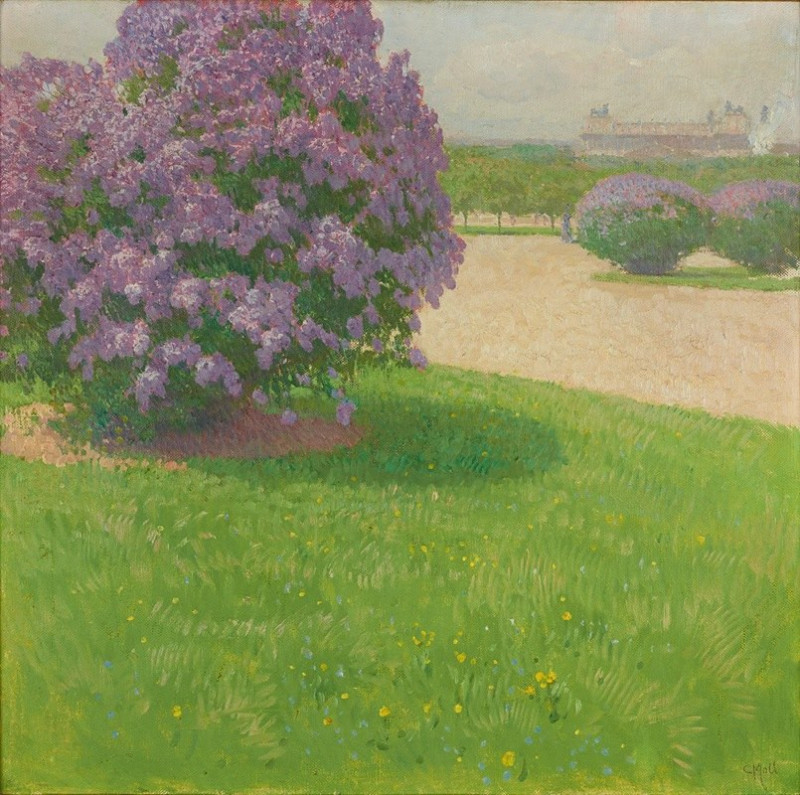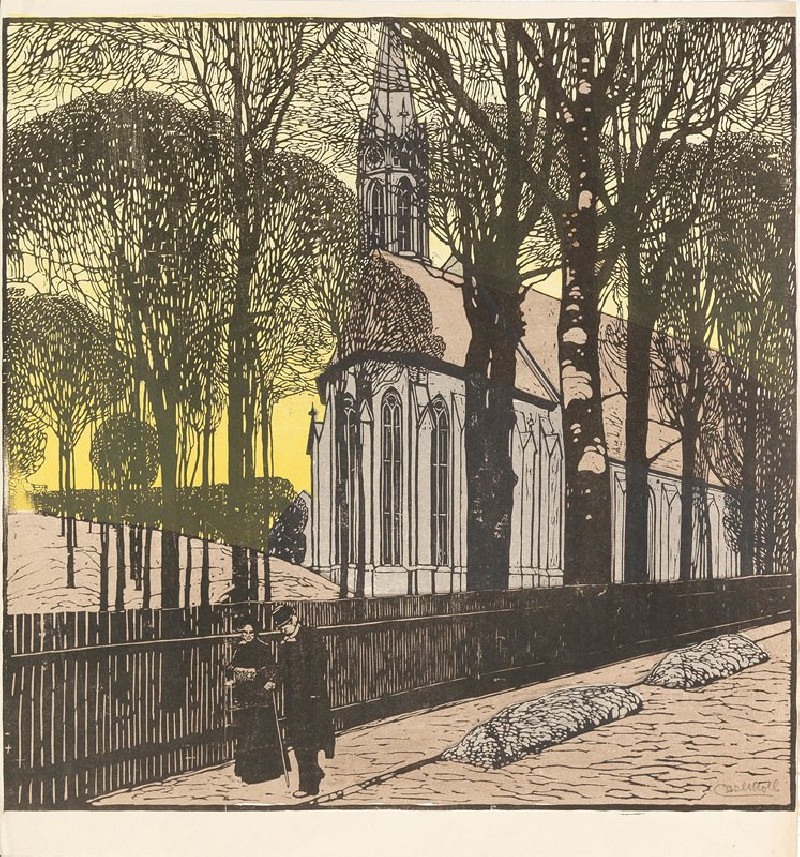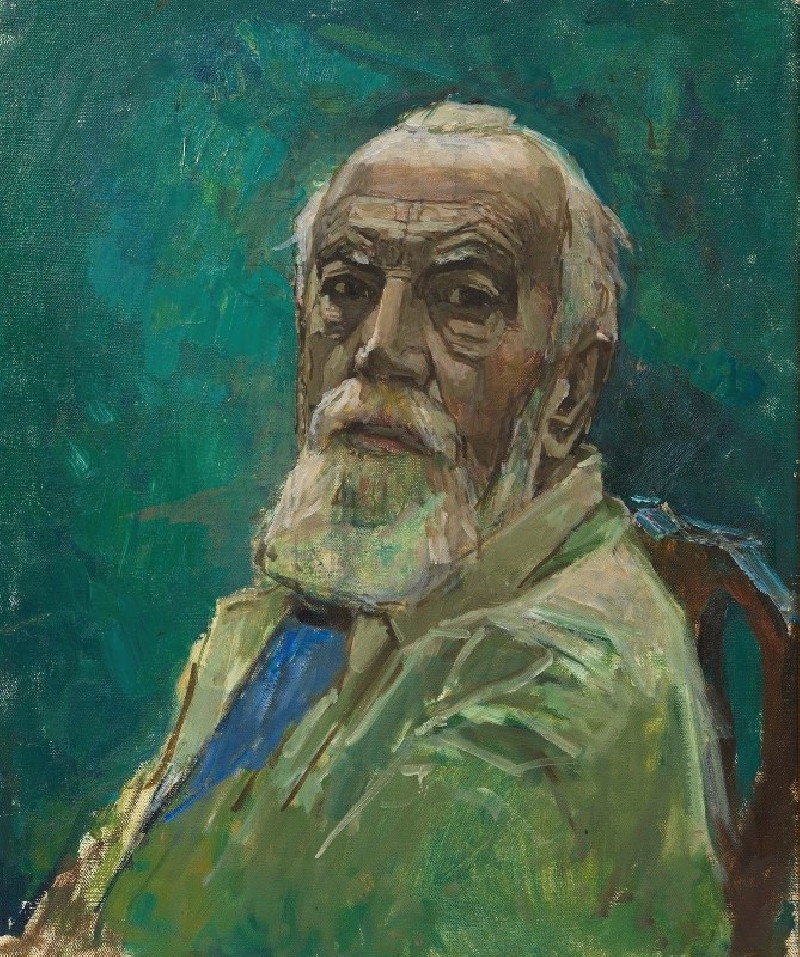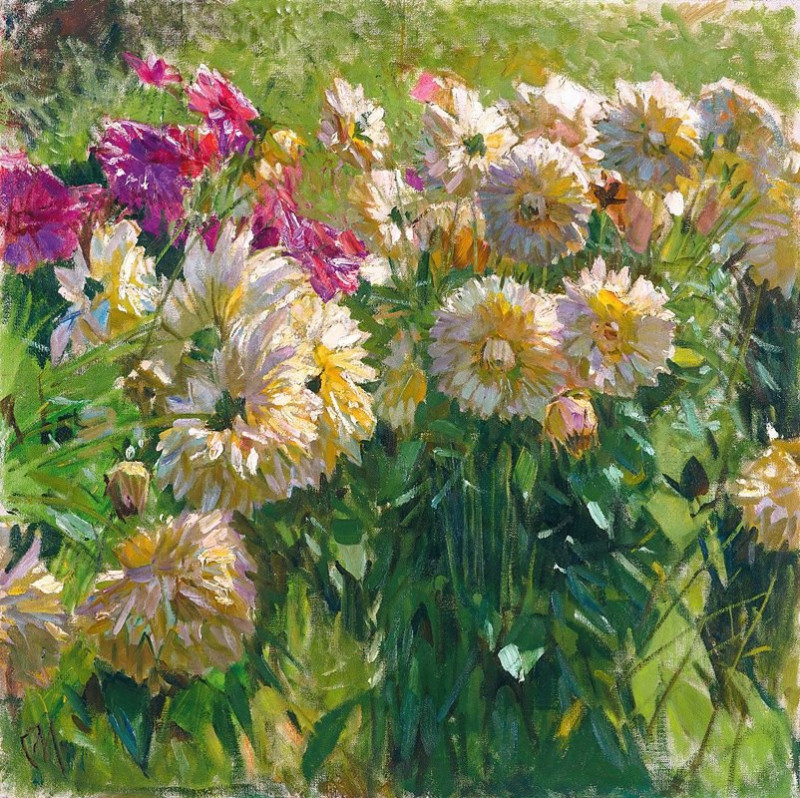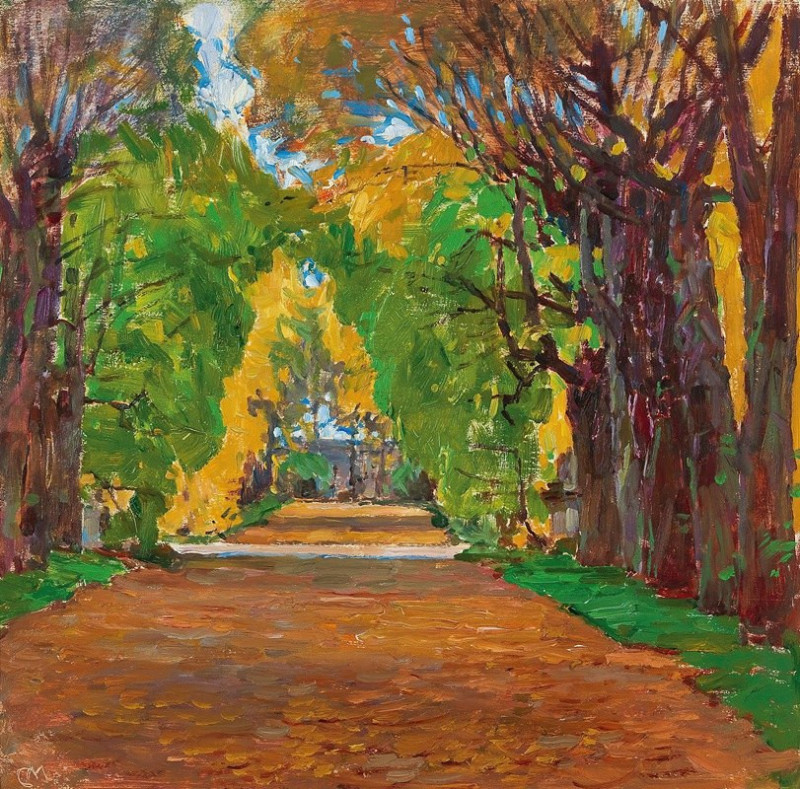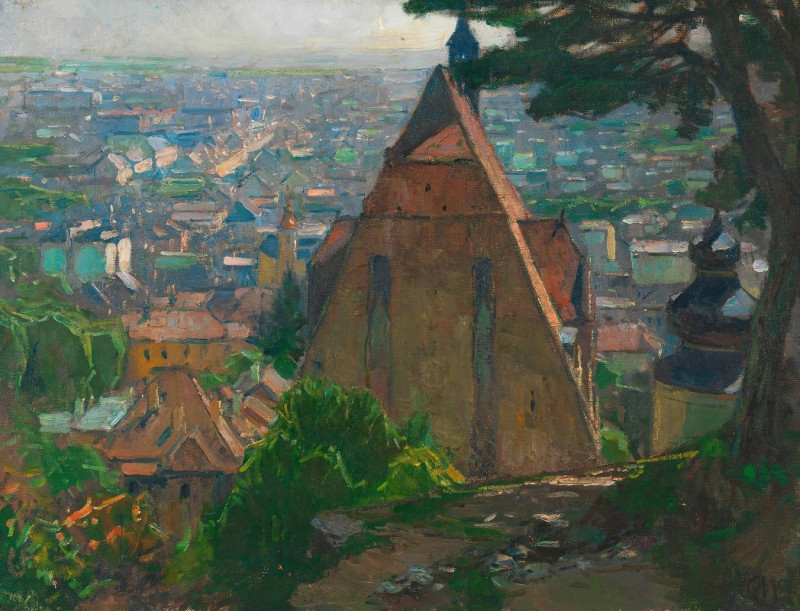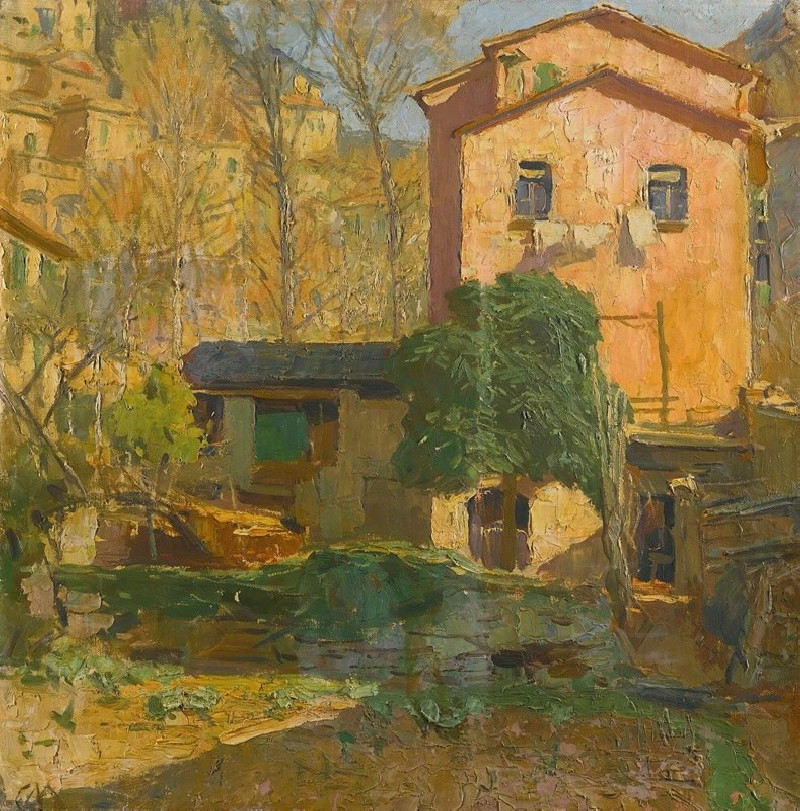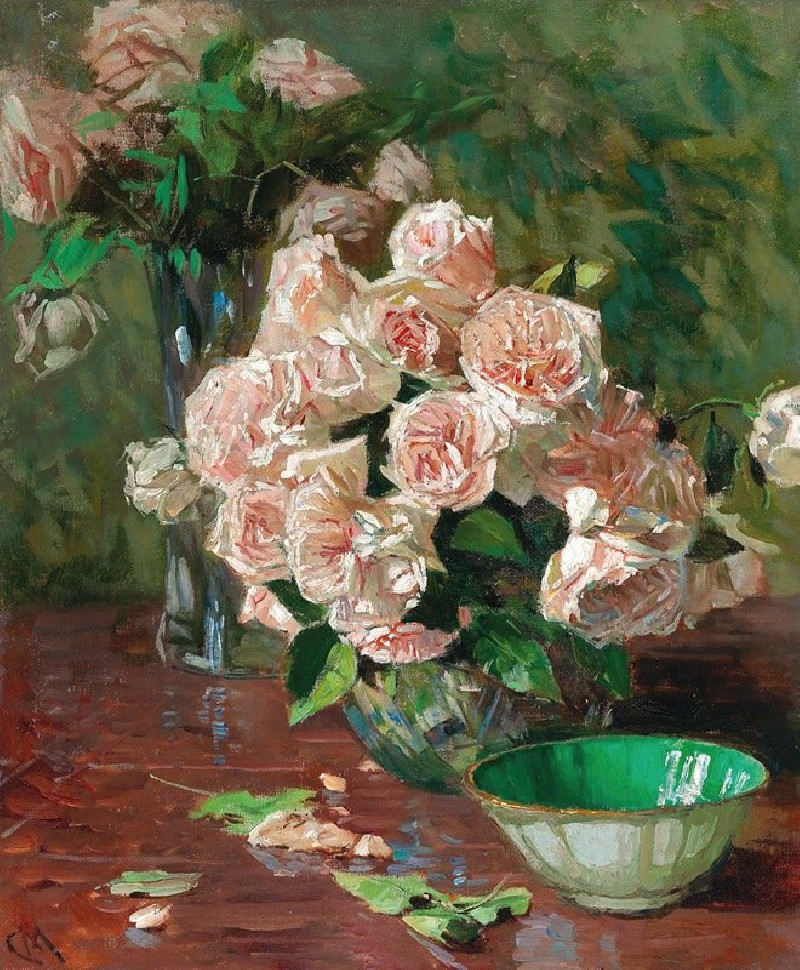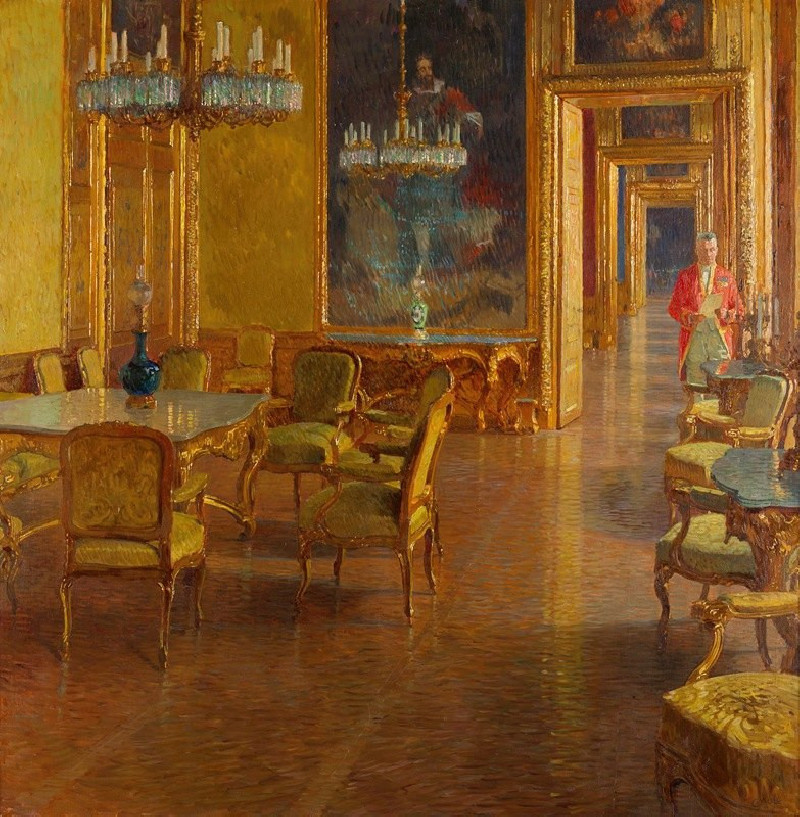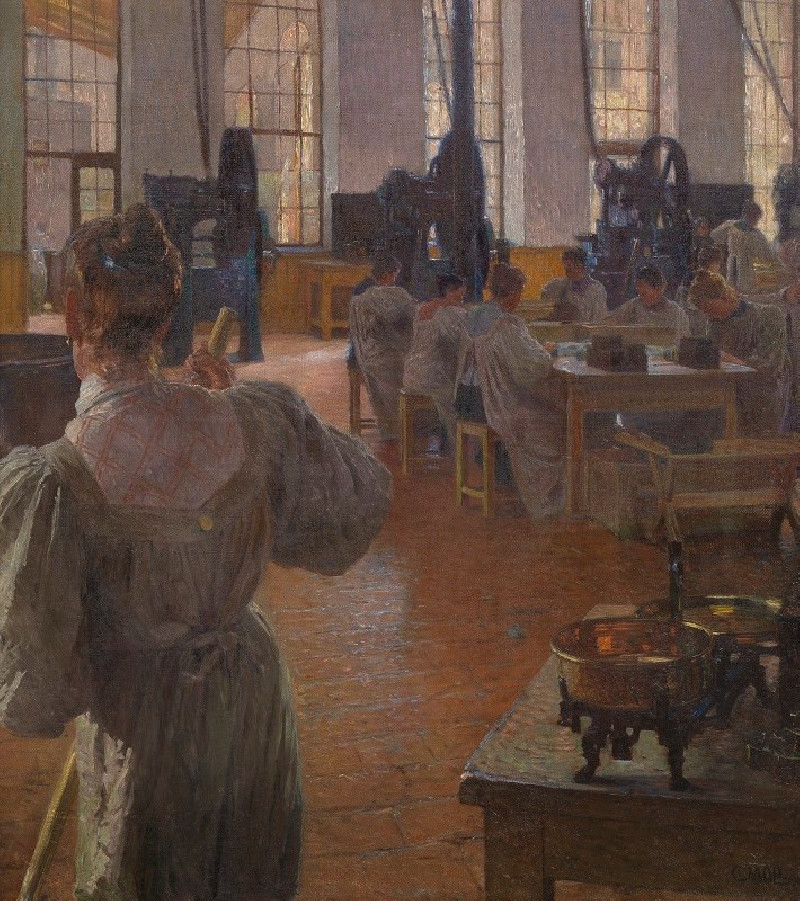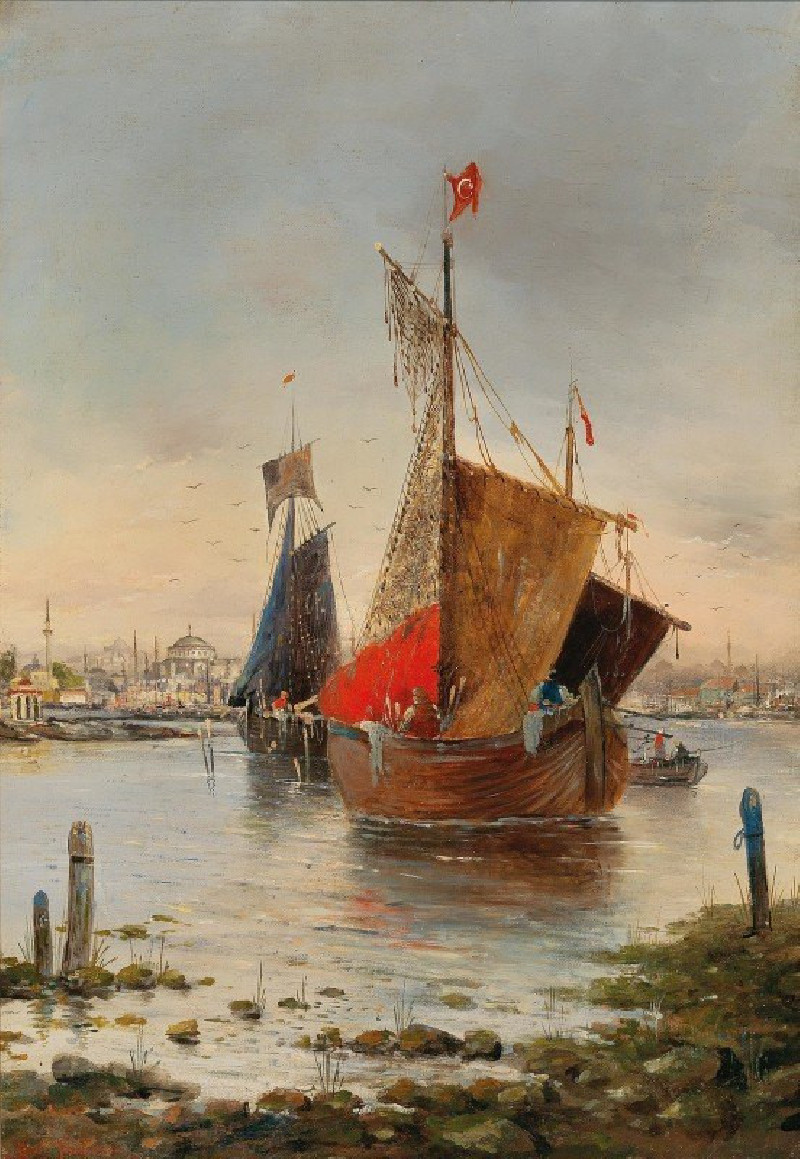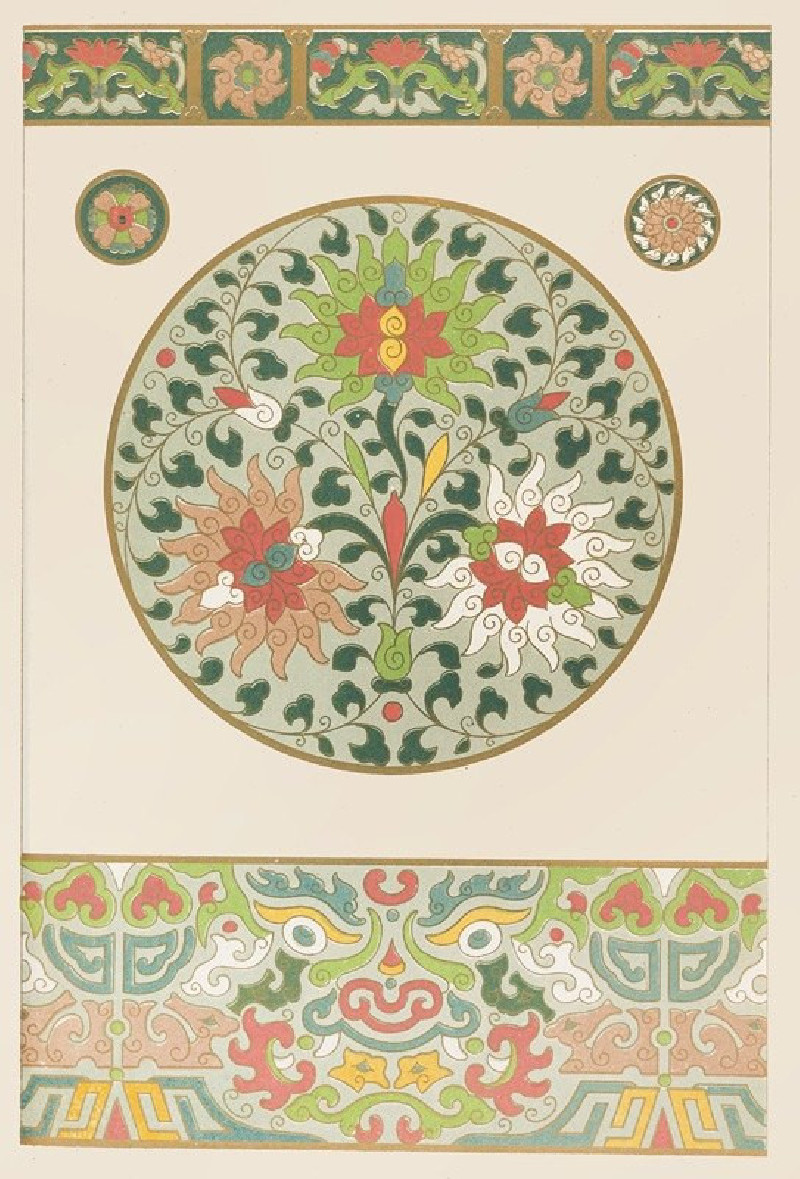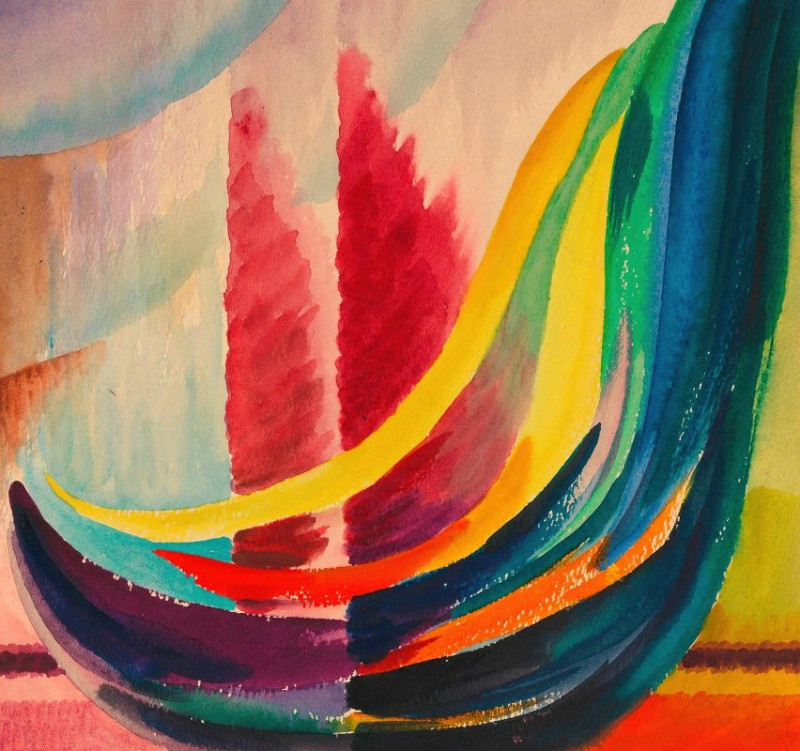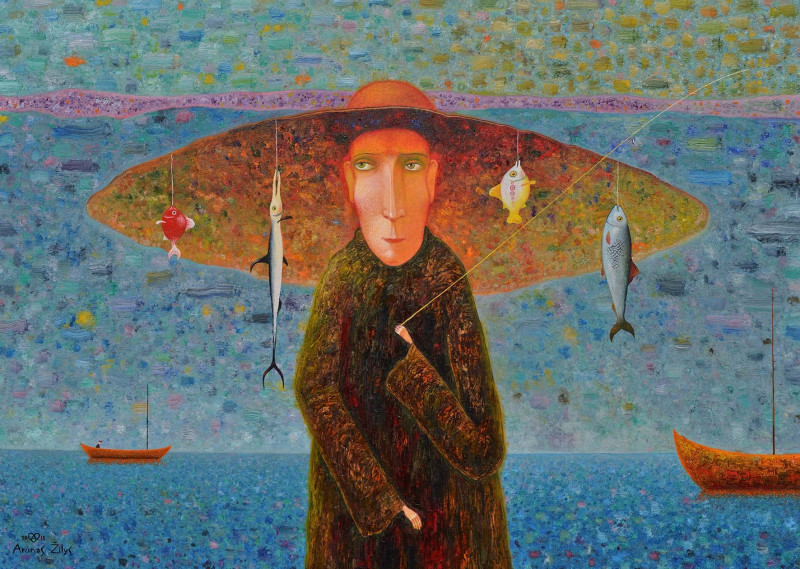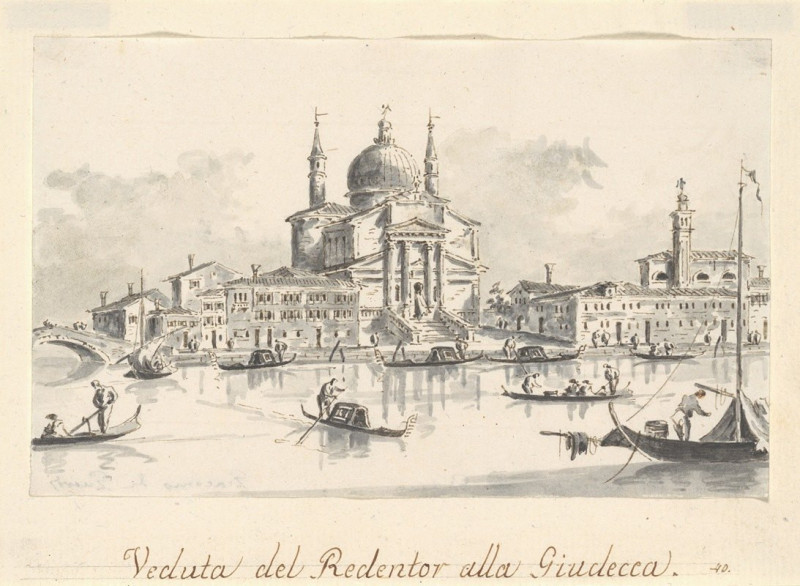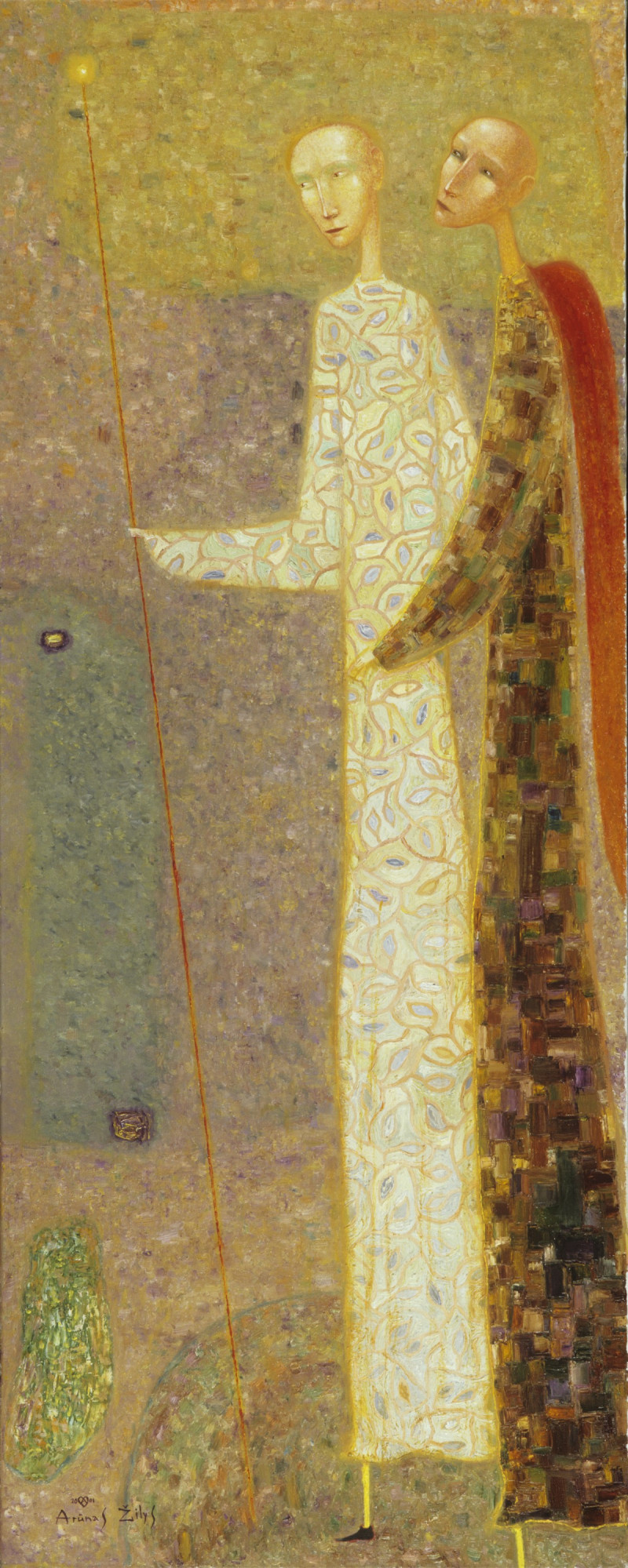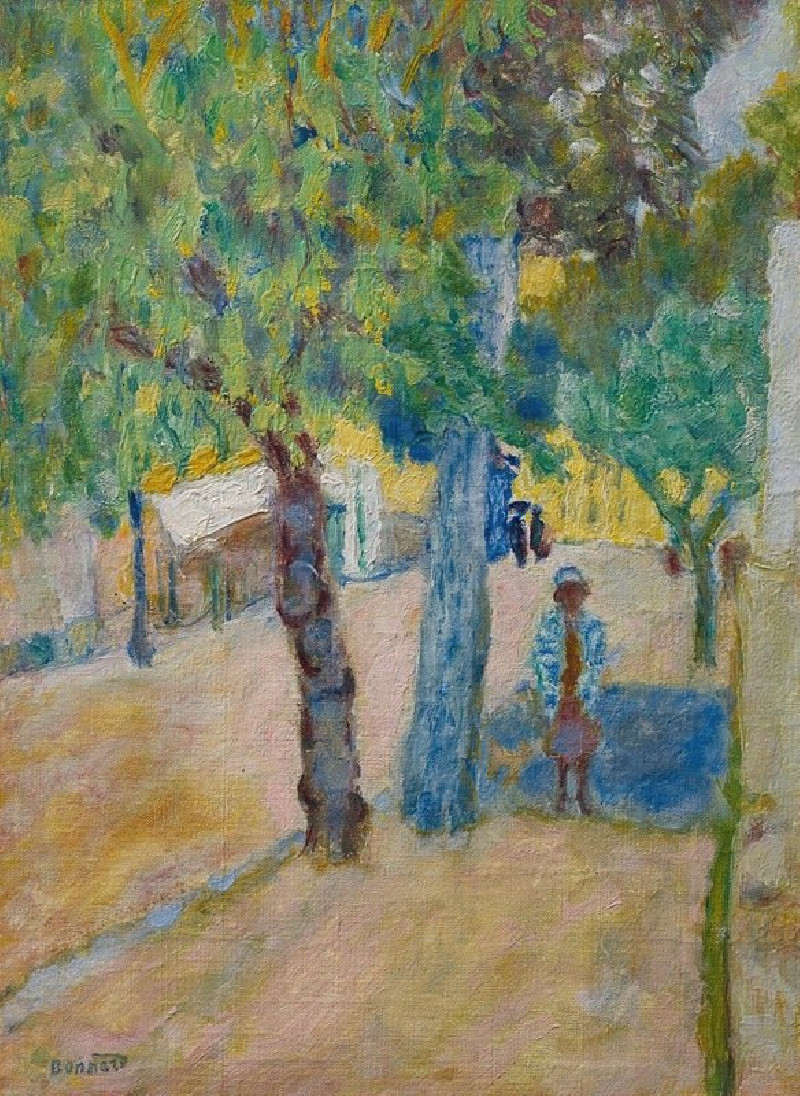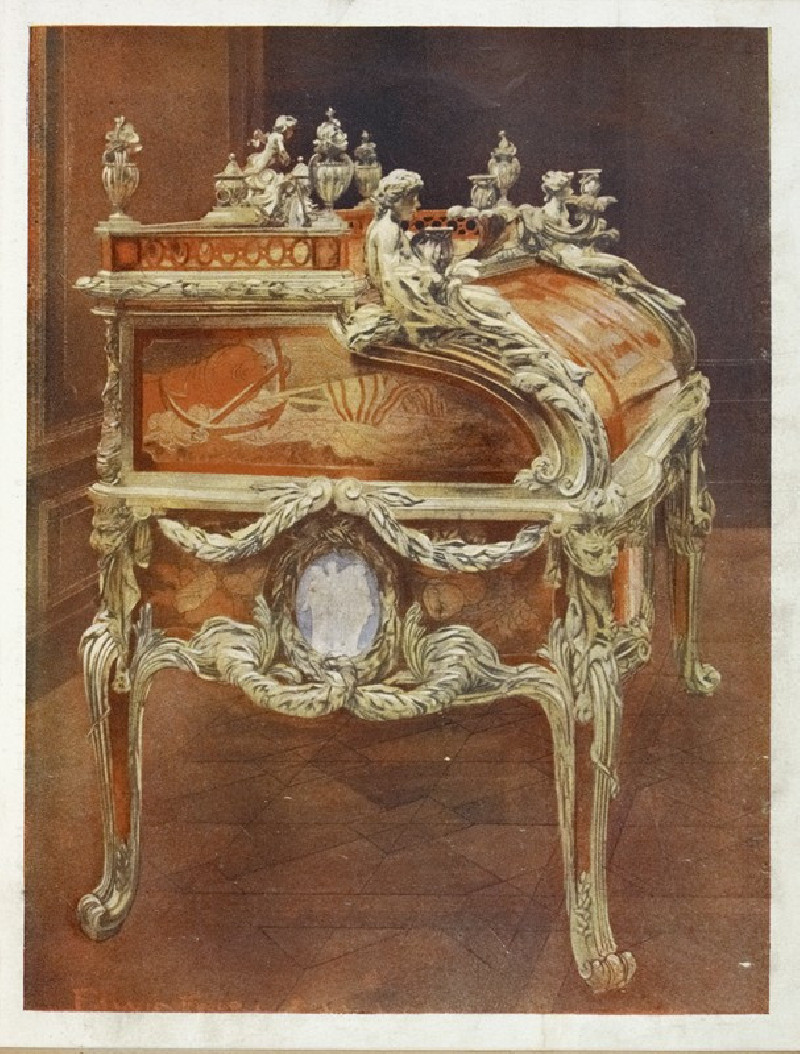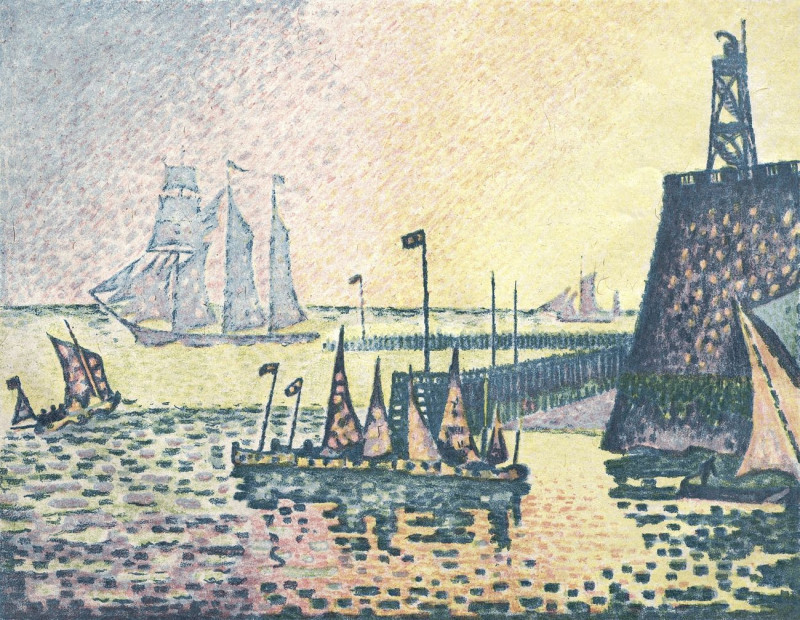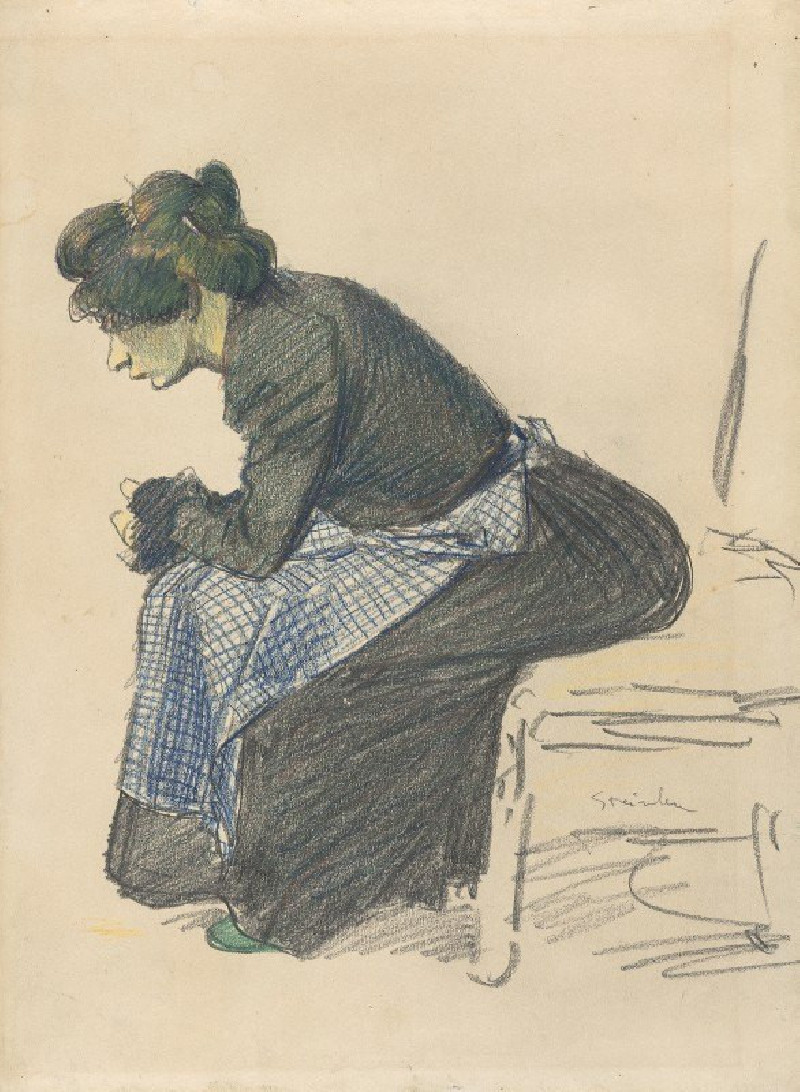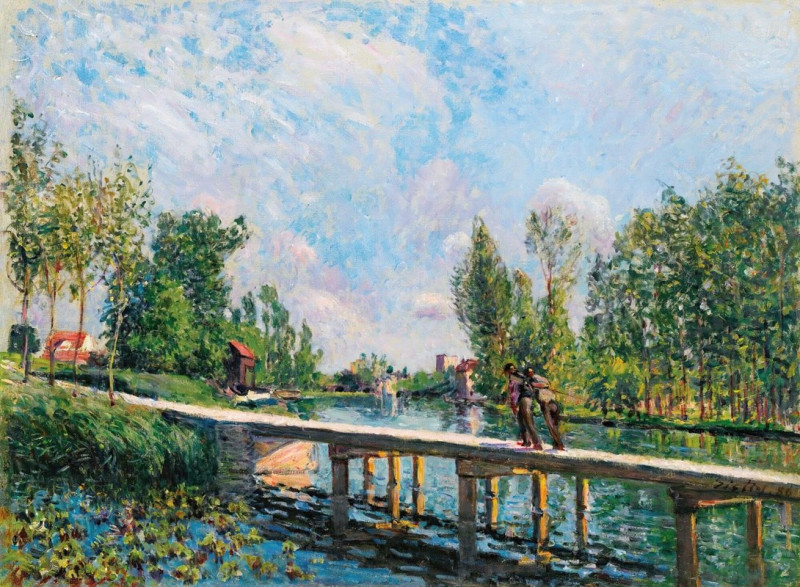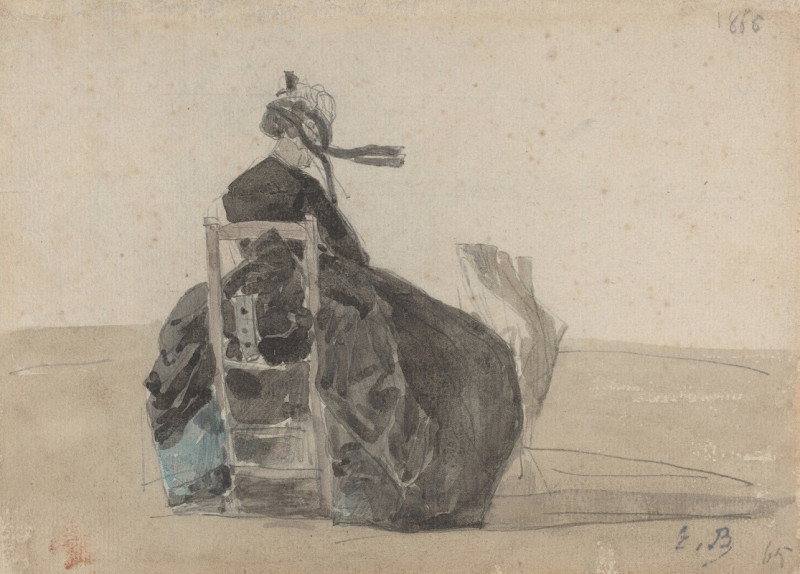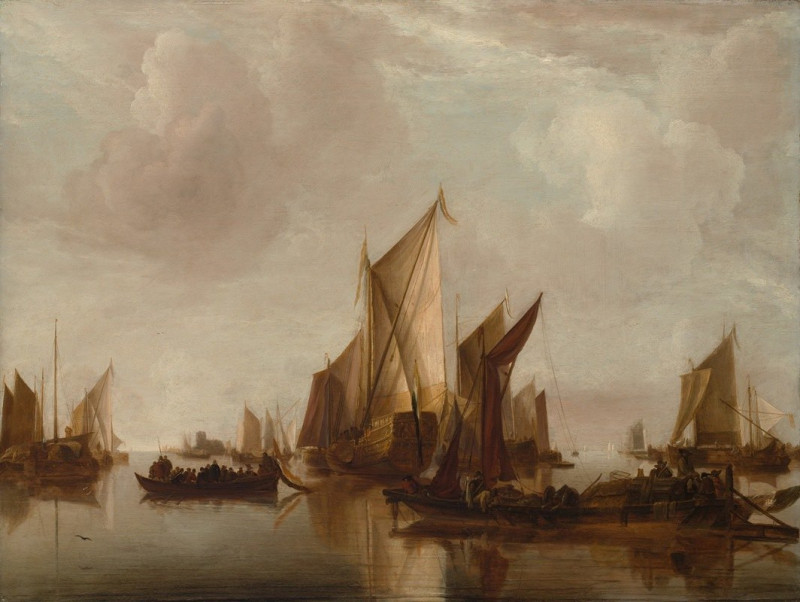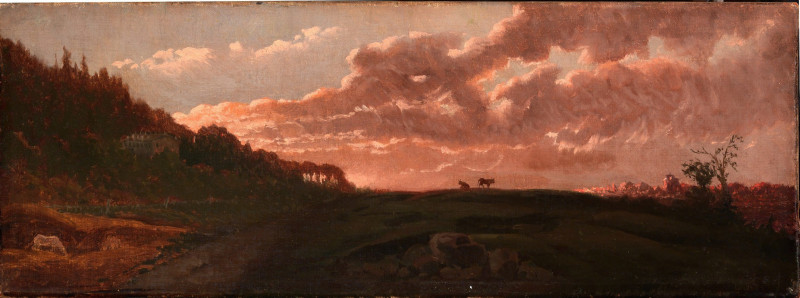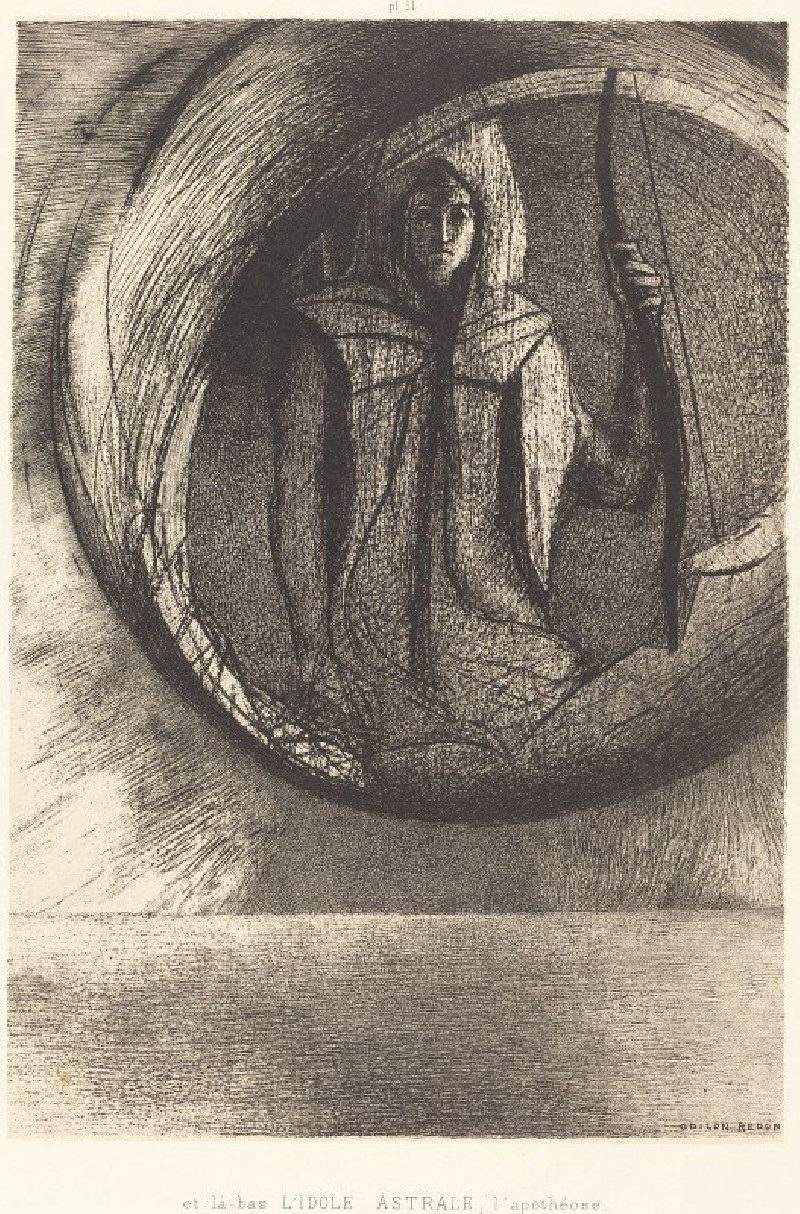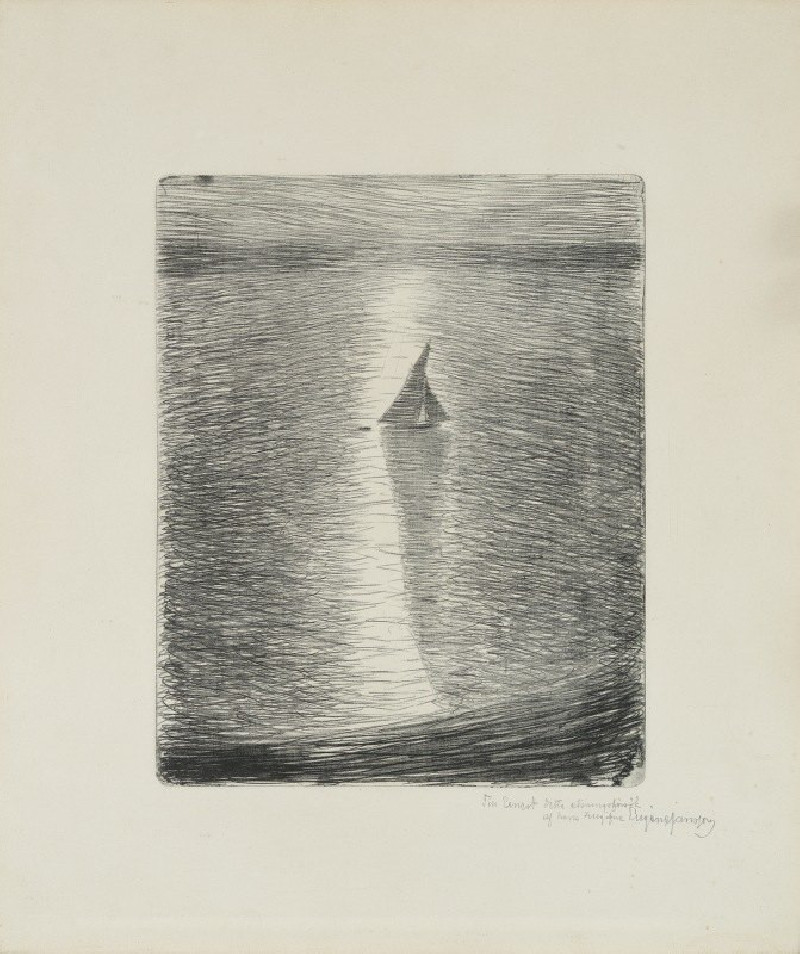Wassermühle in Goisern (nach Emil Jakob Schindler) (1884)
Technique: Giclée quality print
Recommended by our customers
More about this artwork
"Wassermühle in Goisern (nach Emil Jakob Schindler) (1884)" by Carl Moll is an exemplary work that captures the tranquil yet lively essence of a rural landscape. This painting depicts a scene dominated by a watermill, situated in the serene surroundings of Goisern. The mill stands robustly on the right, with water channelled through wooden flumes, vividly capturing the functional beauty of the structure. The flowing water leads the viewer's eye into the composition, reinforcing the mill’s integral role in the scene.In the middle distance, figures can be seen engaging in daily activities near a bridge that crosses the quiet stream, further invoking a sense of rural life and community. The landscape behind these elements gradually rises to unveil lofty mountains, shrouded by a sky dense with dynamic cloud formations. Moll's skilled brushwork creates a mood that is both dynamic and somber, suggesting a typical gloomy weather that often envelops such highland areas.Moll pays homage to Emil Jakob Schindler through his atmospheric interpretation, focusing on the interaction between light and natural elements. This piece not only showcases Moll's mastery in painting rural settings but also his ability to convey deep, emotional narratives through landscape art.
Delivery
Returns
Carl Julius Rudolf Moll (23 April 1861 – 13 April 1945) was an Austrian art nouveau painter active in Vienna at the start of the 20th century. He was one of the artists of the Vienna Secession who took inspiration from the pointillist techniques of French Impressionists. He was an early supporter of the Nazis and committed suicide as Soviet forces approached Vienna at the end of World War II.

